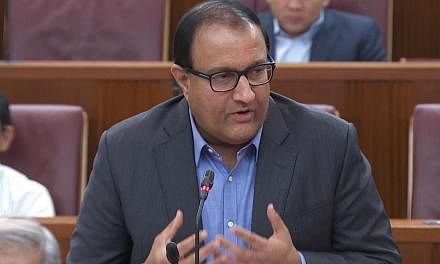SingHealth has warned patients about fake text messages, even as it embarks on a major exercise to inform patients if their personal data had been stolen.
It said on Friday that it was aware that some people have received fake messages claiming their phone numbers, financial details and medical records had all been stolen.
But SingHealth said "no phone numbers, financial information, or other patient medical records have been illegally accessed". What had been stolen, it said earlier, were details such as names, IC numbers, addresses, birth dates and outpatient prescription records.
Over 700,000 SMS messages have been sent to affected patients, SingHealth said yesterday. The stolen data relate to visits at its specialist outpatient clinics and polyclinics between May 1, 2015 and July 4 this year.
But some said they have received SMS notifications addressed to another person. Student J. Parvin, 23, was surprised to receive a message meant for someone else. It said the person was not affected.
Ms Parvin, however, found out on SingHealth's website that her personal data had in fact been stolen.
A SingHealth spokesman said it has received feedback about patients receiving SMSes addressed to other people. She said this could be a result of recycled mobile numbers or wrong numbers given to SingHealth.
She said the public can visit the SingHealth Facebook page for regular updates and to see a sample screenshot of the message.
SingHealth said the rest of the SMSes would be sent over the next two days. The 150,000 patients who did not register their mobile numbers will receive letters within a week. It said it has received more than 4,800 calls and 750 e-mails about the incident so far.









